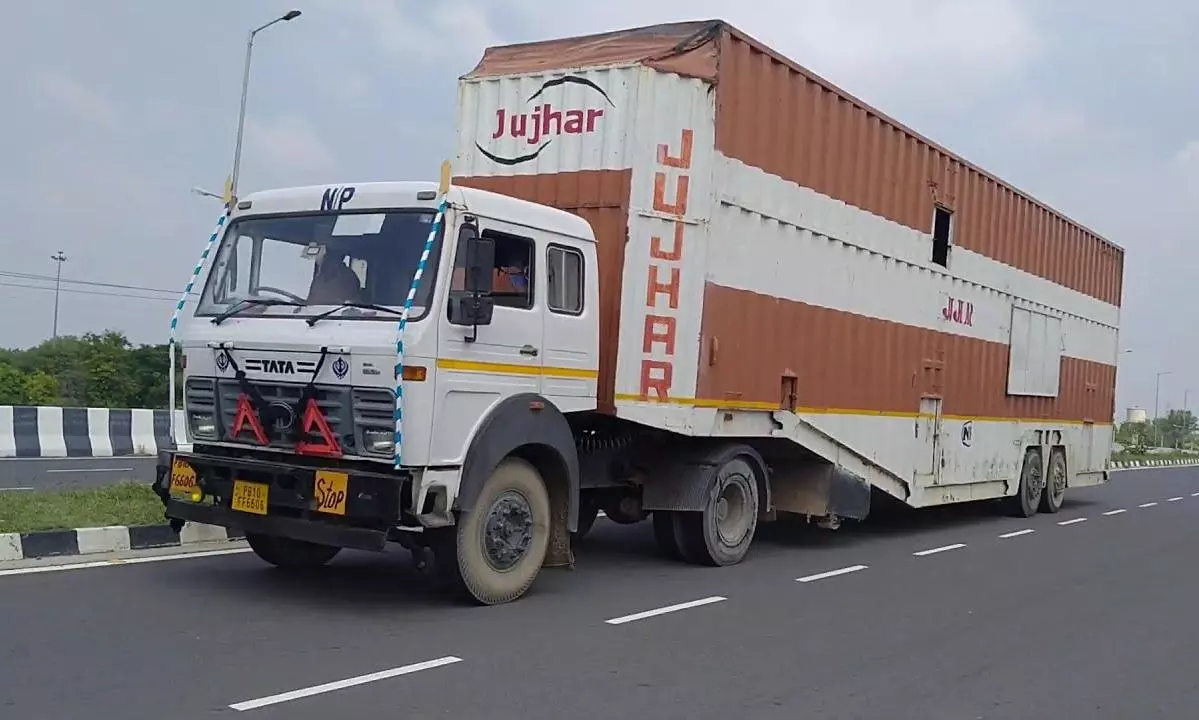Driver issues, truck utilization, electrification in Indian trucking

The trucking sector in India plays a role in the country's economy by facilitating the transportation of goods over large distances. It guarantees that goods are delivered to customers and businesses on time thereby promoting trade and commerce. Although essential the industry encounters obstacles that need attention to foster its progress. Important aspects to consider involve driver concerns maximizing truck usage, expanding operations and adopting vehicles.
Driver issues
An important issue in the Indian trucking industry is how to safeguard the health of truck drivers and their kinfolk. Frequently, drivers toil under unwholesome conditions, spend long hours at work, fail to get enough sleep, which makes them tired and prone to road accidents. Access to good medical care and insurance cover is difficult for them. The situation is worsened by the lack of decent healthcare and insurance cover, making them even more vulnerable. What makes it difficult to recruit new drivers is the societal stigma attached to this type of profession. Improving driver conditions through improved pay, healthcare, and working conditions is essential for the industry's sustainability.
For example companies, like Jujhar Group and other similar brands distinguish themselves by taking an approach to driver well being. They offer health insurance coverage for their drivers. Also extend benefits to their families. This does not ensure the driver's health. Also gives them peace of mind knowing that their loved ones are looked after. Such measures enhance driver loyalty and job satisfaction, reducing turnover rates and improving the overall efficiency of operations. Jujhar Group's approach highlights the importance of employers taking care of seemingly minor but crucial aspects of driver welfare. By doing so, they not only improve the lives of their drivers but also set a benchmark for the industry to follow.
Truck utilisation
Another essential challenge is the efficient use of trucks. Low levels of technology adoption have been found in the Indian trucking industry leading to ineffective routing as well as underused capacity prompting high operations costs. Trucking companies that want to increase their efficiency should consider installing modern tracking systems that will help monitor trucks real-time and even change destination points using sophisticated algorithms changing routes whenever possible or necessary—these improvements save money besides increasing contentment among clients due to timely deliveries.
Scalability
The Indian trucking industry still grapples with scalability. It has many small fleet operators that cannot expand their business due to inadequate financial resources. Economies of scale can be achieved if these operators form alliances or come together under one entity. Furthermore investments in infrastructure including improved road networks as well as construction of logistics parks are key for industry growth. Government initiatives and private sector investments can play a pivotal role in addressing these infrastructural challenges.
Electrification
Perhaps the most significant opportunity for the Indian trucking business has to do with electrification. Still, there is a growing interest in electric trucks due to the increase in fuel prices and the effects of the emission of harmful gas into the atmosphere. Compared to electric trucks, the initial capital cost is high; however, operation expenses are cheaper, and they achieve better ecological ratings in the long haul. But thereby lies the rub: the prospects of electrification are currently threatened by challenges like the inadequate charging infrastructure and, first of all, the issues of constructing long-lived and efficient batteries. Several recommendations are as follows: Since electric trucks’ development and deployment require substantial investment and because many implementation challenges are interrelated, policymakers and key industry parties must establish a pro-electric truck ecosystem.
The trucking industry in India is currently at a juncture encountering obstacles along with promising opportunities for advancement. In order to progress it must address issues such as supporting truck drivers, optimizing truck utilization, expanding its scale and embracing the use of vehicles. Companies need to prioritize the well being of their drivers and set examples to demonstrate the impact of caring for them. By doing so they can influence brands and industry stakeholders to prioritize the welfare and happiness of their employees. If the industry successfully addresses these challenges and capitalizes on opportunities it can pave the way for a robust and prosperous future.



